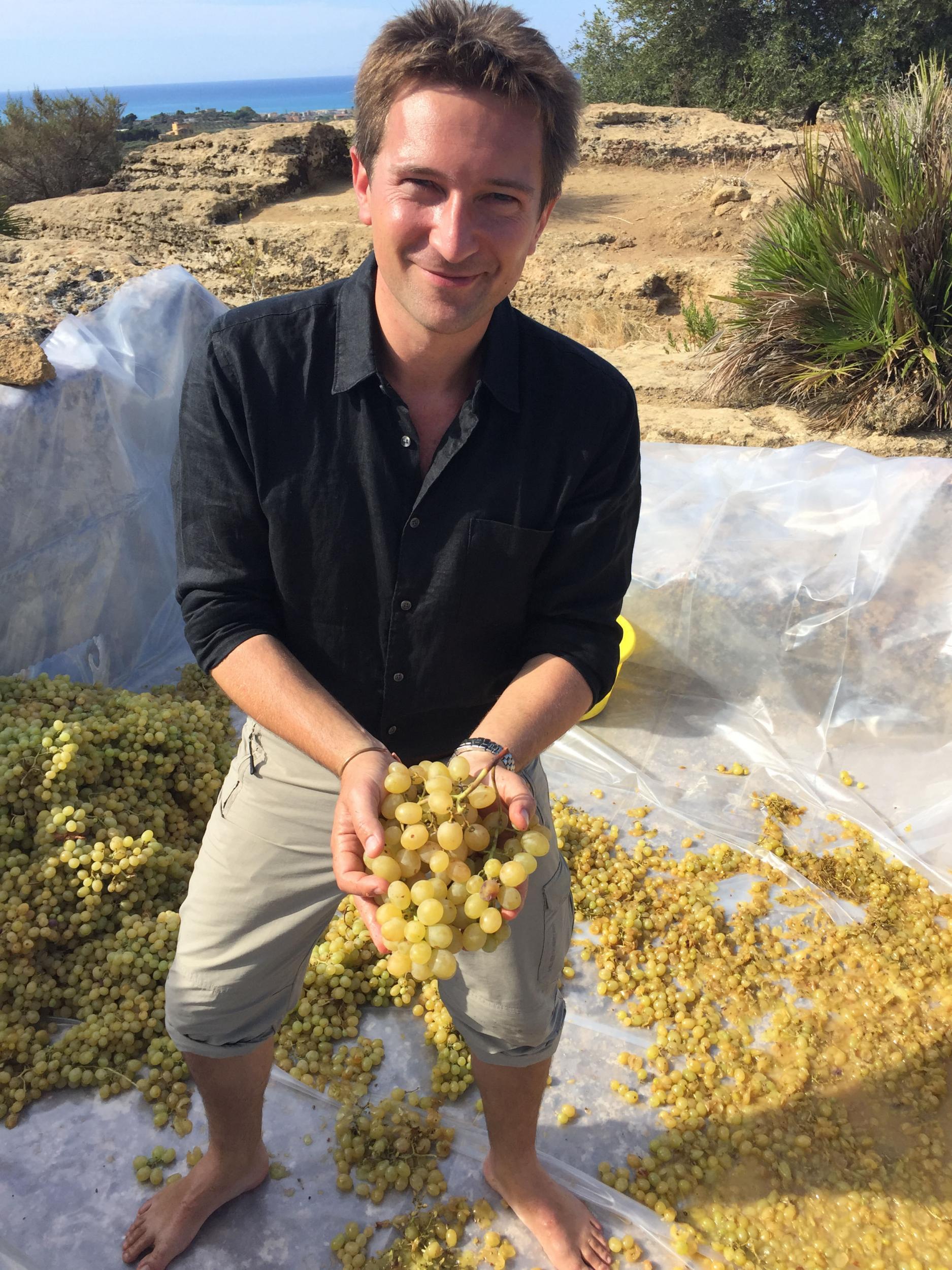Last night's TV: Sicily: Wonder of the Mediterranean (BBC2); Tales from the Coast with Robson Green (ITV); The Modern British Slave Trade (Channel 4)
Sicily and Cambridgeshire vie to put migration in the right context

You could, if you’d wanted to, have spent last night vicariously exploring quite a decent slice of the world in the company of various celebrities/personalities, courtesy of your telly. You could have accompanied a garishly dressed Michael Portillo punting around Colorado in Great American Railroad Journeys; Ray Mears would have been your trusty guide to the Lake District; On the isle of Lundy, off the Devon coast, Robson Green was ready to take you up the Devil’s Slide (not a euphemism); and the warm wonders of Sicily were methodically chronicled by Michael Scott. It’s almost like browsing through a pile of holiday brochures (in the pre-digital world) and dreaming.
Robson Green, I’ll concede, made a better job of his travelogue than I’d expected, the familiarity of the Devon coastline and the story of Lundy being rather more familiar than most. I enjoyed the story about how, as a child, he and his family would drive for 10 hours in a Hillman Imp to reach this idyll, Robson chucking his guts up all the way down the M1.
Things are more civilised now, in his smart new Land Rover with tis special bedroom conversion on the roof. It was fun to see him frolicking and then being menaced by the Lundy sea lions, but I think he promised too much when he declared at the outset of his odyssey that he wanted to “find out how being an island nation made Britain the place it is today”. I admit the Hillman Imp made more of a marl on our social history than is often allowed, but on the whole I think the BBC’s many series of Coast pretty much exhausted the topic (and the viewers).
I think I speak for most of us when I say that Sicily wins out among these televisual destinations, and Sicily: Wonder of the Mediterranean is the equivalent of one of those tours where you get up off your butt and do the guided history tours instead of doing sod-all on some beach. So we were there to learn, and I came away duly enlightened and endowed with a 3,000-year perspective on the current migration crisis – a calming experience recommended to Ukip voters.
Thus Sicily as we see it today – still on the crossroads of the eastern and western Mediterranean, a stepping stone between Europe and Africa and a magnet for migrants – was always thus. Sicily’s original tribes were supplanted and augmented over the millennia by invasive Greeks, Romans, Barbarians, Byzantines, Arabs, Normans, Germans (a couple of times in their case), Spanish and even the British and Americans tearing into the soft underbelly of Fascist Europe in 1943. I ought also mention the Phoenicians from, yes, what is now Syria and Lebanon, who set up their a trading posts and built their own city, the remains of the city they left behind still there, the remains of their paganistic temples left behind.
The Greeks brought with them viniculture, and methods unchanged for millennia; that is, until the wicked European Union had, in the 1990s, banned the traditional method of making wine in Sicily – treading the grapes barefoot in the open air, the juice sliding down a slope. What awful Brussels bureaucrats we thought, until it was mischievously revealed by Michael Scott (a proper historian) that, such was the pace and demands of the work that, well, comfort breaks were not allowed, and, thus, pee joined the pulp of the Grillo and Perricone grapes. There are two sides to every story.
Thus, another, more disquieting, perspective on migration was offered in the gruelling Channel 4 documentary The Modern British Slave Trade. Now the interesting thing about modern slavery – shocking is a better word – is that the modernday slavedrivers are moving away from vulnerable migrants and instead turning to the homeless for their “recruitment” efforts. Picked up at soup kitchens and round hostels, men in vans offer work, accommodation and meals. It’s a con, of course, and the best anyone joining these gangmasters can expect is back-breaking toil for a pittance and inhuman living conditions. At worst it’ll be a shallow grave.
But the human trafficking is still going on, and it offers some reason – however unjustified and out of context – for why people in, say, eastern England may have been so keen on Brexit. Right now there is, somewhere in the Cambridgeshire countryside, a clutch of shivering Latvians living – if that’s the world – in a tarpaulin tent in a muddy field with a toilet comprising two stacked lorry tyres. When they arrive in England, on the back of the usual false promises, they live in virtual imprisonment and debt-fuelled servitude, and are set to work, if there is any, in the fields picking veg. The women are especially badly-treated; threatened, apparently, with the removal of an organ to pay off the debts their gangmasters have frauded them into. So they are pushed into prostitution or made to take part in sham weddings – as EU citizens they can be used for this purpose quite readily.
The humane, liberal instinct of anyone is to say that the social evil shoulder dealt with by enforcing the minimum wage and tough sentencing for traffickers, but you wonder if that will ever do much to eradicate the trade. I am sorry to say I learned a lot more about what is making Britain the place it is today from this timely Channel 4 effort than anything else this week.
Subscribe to Independent Premium to bookmark this article
Want to bookmark your favourite articles and stories to read or reference later? Start your Independent Premium subscription today.

Join our commenting forum
Join thought-provoking conversations, follow other Independent readers and see their replies